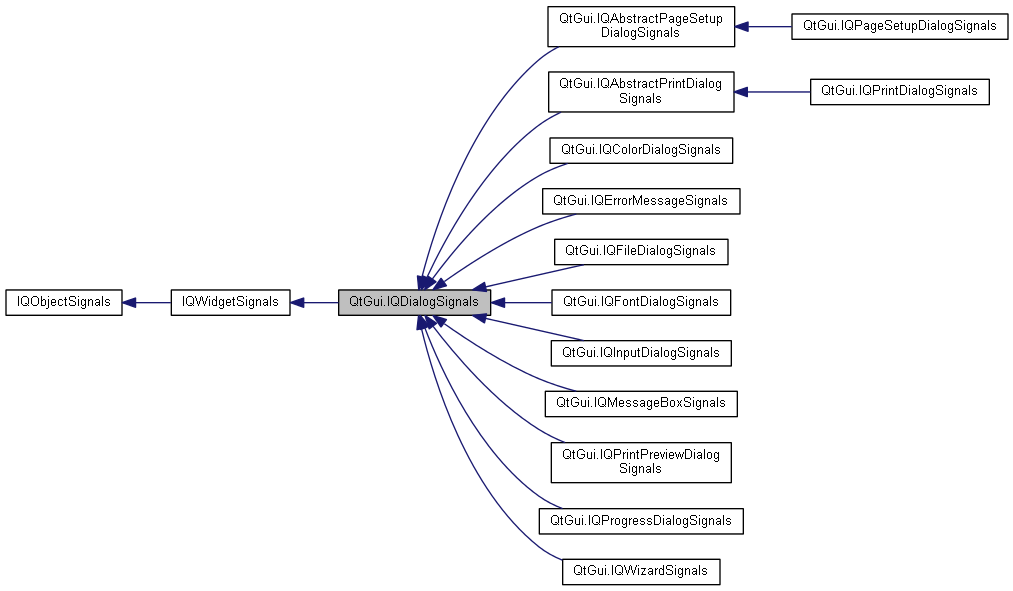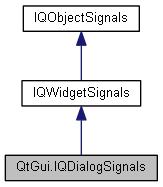|
Qyoto
4.0.5
Qyoto is a C# language binding for Qt
|
|
Qyoto
4.0.5
Qyoto is a C# language binding for Qt
|


Public Member Functions | |
| void | Finished (int result) |
| | |
| void | Accepted () |
| | |
| void | Rejected () |
| | |
 Public Member Functions inherited from QtGui.IQWidgetSignals Public Member Functions inherited from QtGui.IQWidgetSignals | |
| void | CustomContextMenuRequested (QPoint pos) |
| | |
 Public Member Functions inherited from QtCore.IQObjectSignals Public Member Functions inherited from QtCore.IQObjectSignals | |
| void | Destroyed (QObject arg1) |
| void | Destroyed () |
| | |
| void QtGui.IQDialogSignals.Accepted | ( | ) |
This signal is emitted when the dialog has been accepted either by the user or by calling accept() or done() with the QDialog::Accepted argument.
Note that this signal is not emitted when hiding the dialog with hide() or setVisible(false). This includes deleting the dialog while it is visible.
This function was introduced in Qt 4.1.
See also finished() and rejected().
| void QtGui.IQDialogSignals.Finished | ( | int | result | ) |
This signal is emitted when the dialog's result code has been set, either by the user or by calling done(), accept(), or reject().
Note that this signal is not emitted when hiding the dialog with hide() or setVisible(false). This includes deleting the dialog while it is visible.
This function was introduced in Qt 4.1.
See also accepted() and rejected().
| void QtGui.IQDialogSignals.Rejected | ( | ) |
This signal is emitted when the dialog has been rejected either by the user or by calling reject() or done() with the QDialog::Rejected argument.
Note that this signal is not emitted when hiding the dialog with hide() or setVisible(false). This includes deleting the dialog while it is visible.
This function was introduced in Qt 4.1.
See also finished() and accepted().